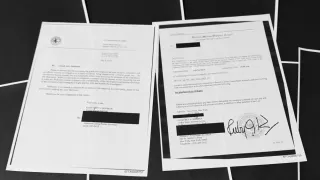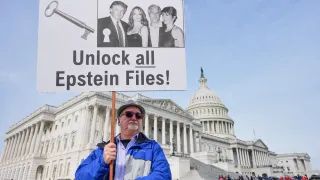
Dec 20
Gay Olympic Medalist Jason Brown Balances Legacy, Visibility and One More Run at Gold
READ TIME: 3 MIN.
When Jason Brown steps onto competition ice this season, he does so as one of figure skating’s most accomplished veterans and one of its most visible openly gay athletes. His bid to reach a third Olympic Games at Milan–Cortina 2026 unfolds at the intersection of sport, identity, and the evolving conversation around LGBTQ+ inclusion in elite athletics.
Brown, born in 1994 and raised in Highland Park, Illinois, first rose to international prominence with a breakout performance set to Riverdance at the 2014 U.S. Championships, a free skate that went viral and helped secure his place on Team USA for the 2014 Winter Olympics in Sochi. At those Games, he contributed to the United States’ bronze medal in the team event, becoming one of the youngest male Olympic figure skating medalists. He later returned to the Olympic stage at Beijing 2022, where he placed sixth in the men’s singles event after delivering two acclaimed programs that emphasized musicality and precision over quadruple jumps.
Brown publicly came out as gay in June 2021 in an Instagram post, sharing the news with followers during Pride Month and joining a growing number of elite athletes openly identifying as LGBTQ+. In subsequent interviews, including a career profile published by NBC Olympics ahead of the 2026 cycle, he has discussed how living openly has allowed him to approach training and competition with a greater sense of authenticity and personal ease.
In a 2025 conversation with CBC Sports’ Anastasia Bucsis on the Player’s Own Voice video series , Brown reflected on the emotional process of recognizing he was gay and deciding when to share that truth publicly. He described looking for other gay people in his life as points of connection, and how feeling secure in his own identity eventually made it possible to come out to family, friends, and then to fans. Brown also recounted early experiences dating men and how those relationships clarified his understanding of his sexuality, reinforcing his confidence in identifying as gay.
For many LGBTQ+ viewers, Brown’s openness has added resonance to a career already defined by artistry and resilience. As a two‑time U.S. champion at junior and senior levels and a two-time Four Continents medalist, he occupies a highly visible position in a sport that has historically included many LGBTQ+ participants but not always openly LGBTQ+ men at the peak of Olympic contention.
Following Beijing 2022, Brown considered retirement, but ultimately chose to extend his competitive career and target Milan–Cortina. In a 2025 interview for NBC Chicago’s Hometown Hopefuls series, filmed at his childhood rink at Centennial Ice Arena, Brown spoke about nearly stepping away from the sport and then rediscovering his motivation to train for a third Olympic team. He cited the support of his family, his long‑time coaches, and the chance to compete once more on an Olympic stage as key factors in his decision.
Brown has also revived his iconic Riverdance program for the 2025–2026 season, calling the choice a way to honor his roots while skating with the maturity and perspective of a veteran athlete. In that same interview, he discussed how his understanding of skating as a form of art has deepened over the years, emphasizing choreography, edge quality, and connection with audiences as central to his approach.
Looking ahead domestically, Brown is scheduled to compete at the 2026 U.S. Figure Skating Championships in St. Louis, Missouri, a key qualifying event on the road to Milan–Cortina. Speaking with St. Louis Magazine, he described the opportunity to skate in the Enterprise Center—after previously competing in local Missouri rinks—as a full‑circle moment and noted that being in the Midwest “feels like home.” His performance there is expected to play a significant role in U.S. team selection for the 2026 Winter Games.
As he prepares for another Olympic push, Brown’s position as an openly gay, multi‑time Olympian places him within a broader movement toward greater LGBTQ+ representation in elite sport. His candid interviews about coming out and navigating expectations in figure skating contribute to a body of public testimony that can be especially meaningful for younger LGBTQ+ athletes searching for relatable role models.
By framing his story around both athletic ambition and personal authenticity, Brown demonstrates that high‑performance sport and open LGBTQ+ identity can coexist in a way that strengthens, rather than undermines, competitive focus. As the 2026 season intensifies, his results will determine whether he adds a third Olympic appearance to his résumé—but his impact on visibility and inclusion in figure skating is already firmly established.






